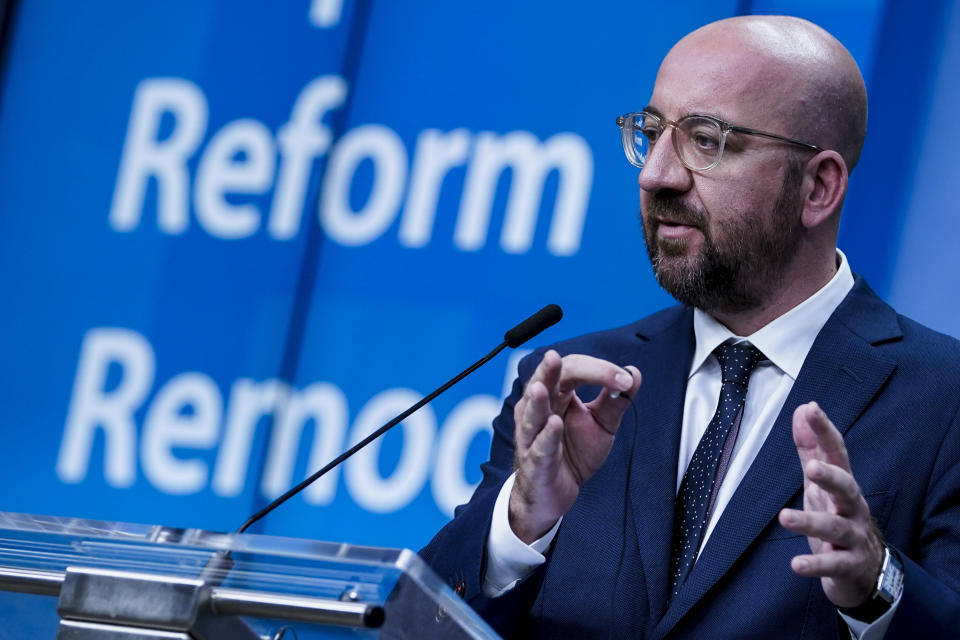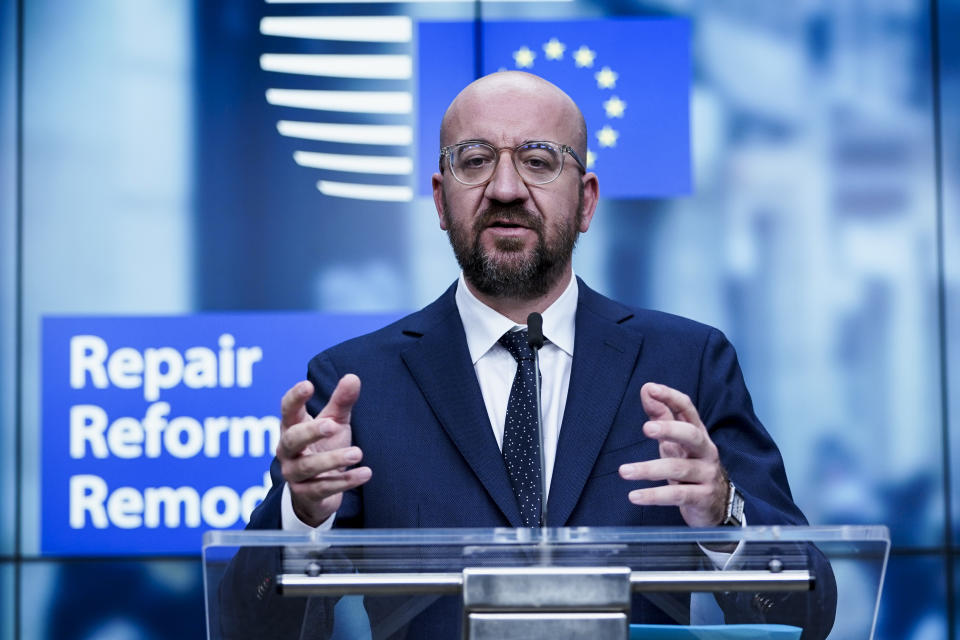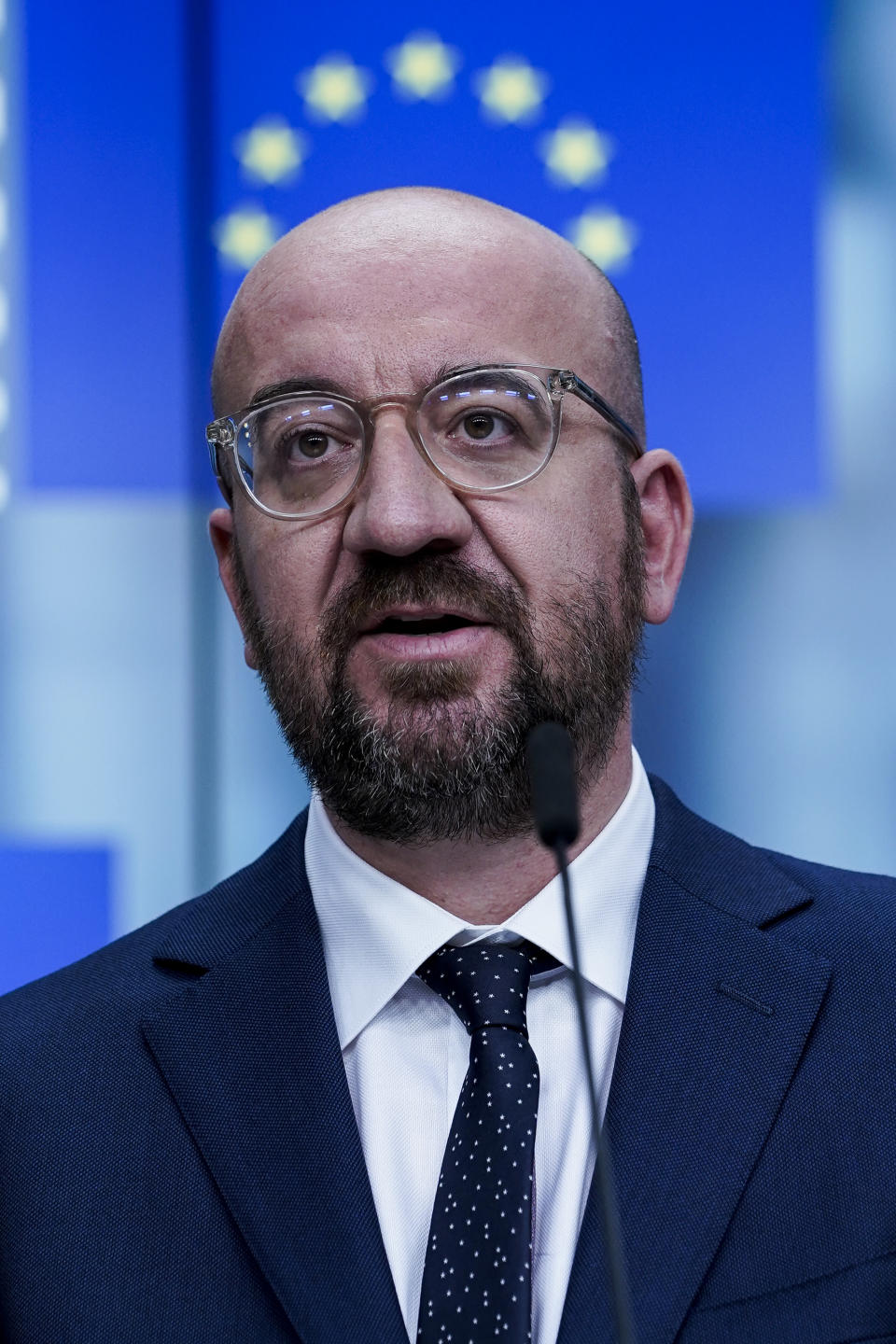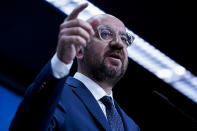EU Council head tries to win over 'Frugal Four' on budget
BRUSSELS (AP) — With pressure mounting to reach an agreement on a post-coronavirus economic recovery plan, the president of the European Council on Friday tried to win over the so-called group of “Frugal Four" member countries with new proposals.
Charles Michel’s latest offers keep the size of the recovery fund, which is meant to help EU countries weather the shock of the economic crisis, at 750 billion euros ($850 billion).
But to win broad support for the package, he offered some countries financial incentives on their contributions to the wider EU budget, which pools money by the bloc's 27 countries to spend on common goals like development, fighting climate change and supporting key industries like agriculture. In line with the European Commission goal's to reach climate neutrality by 2050, Michel proposed that 30% of the funding be dedicated to climate-related projects.
Speaking during a news conference on Friday - a week before EU leaders meet physically in Brussels in a bid to secure a deal on the recovery fund and the budget - Michel proposed an adjusted budget for the 2021-2027 period amounting to 1.074 trillion euros.
In a bid to convince holdouts, he said some countries that pay more into the budget than they receive would get rebates on their contributions. Those countries include the “Frugal Four” who are opposed to the makeup of the recovery fund — the Netherlands, Denmark, Austria and Sweden — as well as Germany.
Michel's offer reflects the desire among many EU leaders to make the recovery fund operational as soon as possible as economies sink into recession and people lose jobs.
Under current proposals by the European Commission, the 750 billion-euro recovery fund aid would include 500 billion euros in grants and 250 billion euros in loans for EU countries.
Crucially, the grants would be backed by common debt among EU countries. The European Commission has a triple A credit rating, which would give it favourable loan terms.
But many wealthier countries have long opposed the idea of borrowing money together. Germany has backed the move in this case, arguing it is an emergency. But the “Frugal Four” continued to oppose the idea the last time they discussed it three weeks ago.
“On June 19th, leaders had a first discussions on this proposal that revealed strong opposition to some elements of the package," Michel said.
Michel said it was essential to include grants and not just loans in the recovery package “to avoid overburdening the member states with the higher level of debt. This is key to the future of the single market.”
He proposed that 70% of the recovery fund be allocated in 2021 and 2022, with the rest committed in 2023 and distributed by 2026. The money is contingent on countries respecting EU standards of the rule of law.
Michel proposed to start repaying the debt from the fund in 2026 - two years earlier than in the commission's plans - and to help repay the costs of the recovery fund with revenue from future taxes on plastic waste, carbon imports and digital businesses.
His plans also include a 5 billion-euro “Brexit reserve” which should serve to counter any "unforeseen consequences” of Brexit.

 Yahoo Finance
Yahoo Finance 









